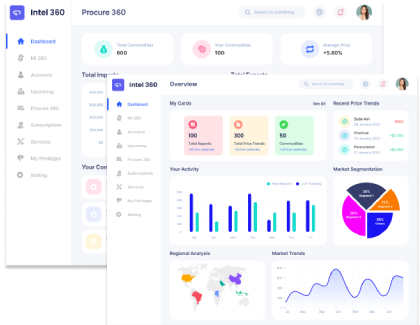Urban areas account for about 63% of the overall FMCG spending, and hence, adopting a premium portfolio will allow the firms to fight this situation.
In 2019, within the span of six months, that is from May till October, major FMCG firms like Hindustan Unilever Ltd (HUL), Jyothy Laboratories Ltd, Reckitt Benckiser (India) Ltd and Dabur India Ltd have set foot in niche categories and introduced premium products. With the aim to target Indian Millennials, the companies are selling the majority of these products on e-commerce platforms.
According to the estimates, rural consumption grew by 3-5% points faster than urban consumption in the previous years, but, with the fall in demand from the rural sector, the industry is facing an overall slowdown. In 2018, during the April-June period, the FMCG value growth slowed down to 10%, whereas its volume growth during the same time fell to 6.2% as compared to 9.9% in the previous quarter.
The large firms are trying to innovate and explore various markets and are focusing on premiumisation, which ensures growth and enhanced profit margin for the companies. In August, Hindustan Unilever Ltd (NSE: HINDUNILVR) launched a new premium laundry brand, Love & Care, targeting prosperous Indians. HUL is a British-Dutch manufacturing company headquartered in Mumbai, involved in the production of food and beverage items, cleaning agents, personal care products, water purifiers, and other consumer goods. The company further plans to drive premiumisation across all its categories and maintain its position.
Download a Free Sample Report with Table of Contents of the Global Household Care Market
Mumbai-based Jyothy Laboratories Ltd (NSE: JYOTHYLAB), which manufactures a variety of products ranging from soaps to homecare items, has introduced premium variants for four of its brands in the fiscal year 2018-2019. The company enhanced its product development efforts to strengthen its position and ensure long-term sustainability in the market. These premium products include a glycerin variant of its Margo soap, tamarind range for liquid Pril dishwasher category, ginger variant for Exo brand under the dishwash cake category, and advanced Maxo Genius mosquito repellent machine for its Maxo brand.
Now, most of the FMCG firms are aiming to target customers in metros, tier-I, and tier-II cities to build their premium category and grow into the mass market. Major companies like Reckitt Benckiser Group plc (LSE: RB), which is a British multinational consumer goods company, and Dabur, are also expanding their portfolio of premium products. In May 2019, Reckitt Benckiser, producer of health, hygiene and home products, brought its global liquid detergent brand Woolite to India while in September, Dabur launched its first hair oil and shampoo for children on e-commerce platforms, targeting millennial and urban consumers.
Thus, in this scenario, the companies are reaching out to their urban consumer base, as it contributes significantly towards FMCG spending. This will ensure a steady growth of the sector despite a weak rural demand. Though the companies are also working on driving rural volume by catering to the needs of the rural population through the adoption of policies like launching products in smaller pack sizes and others, they get the value growth and profit from premium products only.




















Share